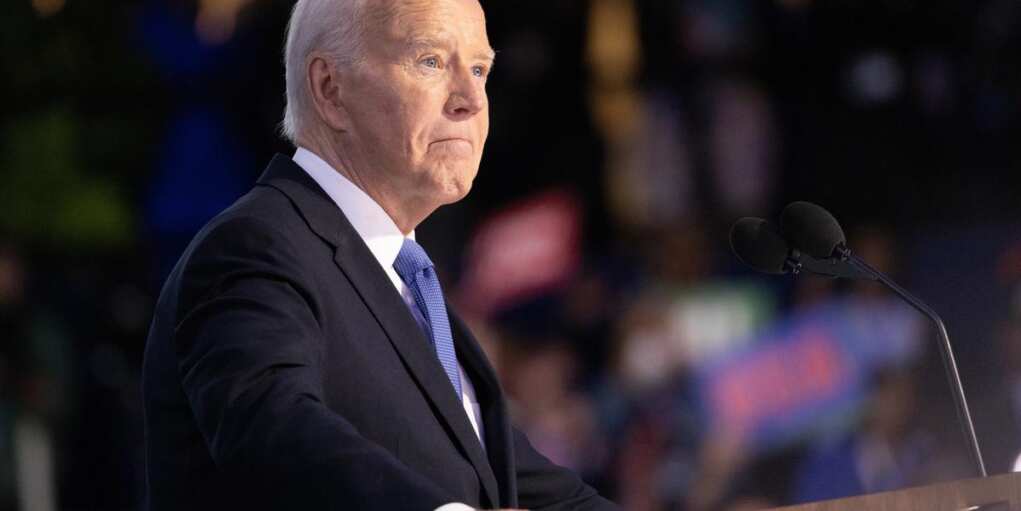Biden Targeted Americans Over ‘Concerning’ Behavior, Not Crimes

A newly declassified government memo is sending shockwaves through Washington, revealing that the Biden administration empowered federal law enforcement to pursue Americans over “non-criminal behavior” deemed merely “concerning.”
Declassified by Director of National Intelligence Tulsi Gabbard as part of her push for transparency and an end to political weaponization, the “Strategic Implementation Plan for Countering Domestic Terrorism” lays out how the Department of Justice, FBI, and Department of Homeland Security rewrote the rules of investigation—dramatically lowering the threshold from “reasonable indication of a crime” to essentially whatever a government agent finds troubling.
The memo, authored by the Biden-era FBI and National Security Council, tasked federal agencies with monitoring Americans based on symbols, language, and attitudes—not criminal actions. The FBI even circulated its now-infamous “Domestic Terrorism Symbols Guide,” which absurdly linked images like the Betsy Ross flag, the Gadsden flag, Revolutionary War quotes, and “Come and Take It” banners to so-called Militia Violent Extremists.
But the most explosive revelations aren’t about flags—they’re about policy. Lawmakers now confirm this memo was the underlying rationale behind the Biden administration’s surveillance and censorship campaigns against concerned parents, traditional Catholics, and other Americans critical of leftist ideology.
“The Biden administration gave federal agents a blank check to snoop on citizens who hadn’t committed a crime,” said Rep. Andy Biggs (R-Ariz.), calling the memo “a broad brush to start spying on Americans.”
According to the memo, the DOJ, FBI, and DHS were told to “enhance public understanding of the role of federal law enforcement in responding to incidents of concerning non-criminal behavior.” That means if you spoke out at a school board meeting or posted a strongly worded critique of government COVID policy, you could find yourself flagged, monitored, or even investigated—without ever breaking the law.
John Lott of the Crime Prevention Research Center says the federal government essentially merged tools meant for violent criminals with those aimed at non-violent individuals. “What shocked me,” said Lott, “was that the types of tools and responses that they have been making for people who are engaged in some type of violence actually applied to non-violent individuals, non-criminal activity.”
Evidence of this overreach is already public. A House Judiciary Committee investigation in 2023 exposed an internal FBI memo targeting “radical-traditionalist Catholics,” suggesting that agents should infiltrate churches to “mitigate threats.” The only “threat”? Expressions of traditional religious beliefs that the administration viewed as ideologically suspicious.
“There was no legitimate basis for the memorandum to insert federal law enforcement into Catholic houses of worship,” said the committee’s report. “Nevertheless, this single investigation became the basis for an FBI-wide memorandum warning about the dangers of ‘radical’ Catholics.”
The same logic—rooted in this newly revealed Biden-era memo—was used to paint conservative parents as potential extremists at school board meetings and to justify censorship in cooperation with Big Tech.
The memo even outlines “interventions to foster resiliency to disinformation,” which, critics argue, opened the door for federal agencies to coordinate with social media platforms to suppress dissent on everything from COVID lockdowns to the 2020 election.
Tulsi Gabbard’s decision to declassify the document has already been praised by watchdog groups and constitutional attorneys. They say it confirms what conservatives have long feared: that under the guise of fighting “extremism,” the federal government has been secretly building a surveillance state targeting ordinary Americans based not on what they’ve done—but on what they believe.
“If you think this ends with traditional Catholics and flag-waving veterans, you haven’t been paying attention,” warned one Republican strategist. “This was never about stopping crime. It was about controlling speech and crushing dissent.”
Calls are now growing for congressional hearings, criminal referrals, and a full rollback of any remaining policies stemming from this memo. Gabbard’s office says more declassifications are coming—and if this first one is any indication, the American public is in for a long-overdue look behind the curtain.

